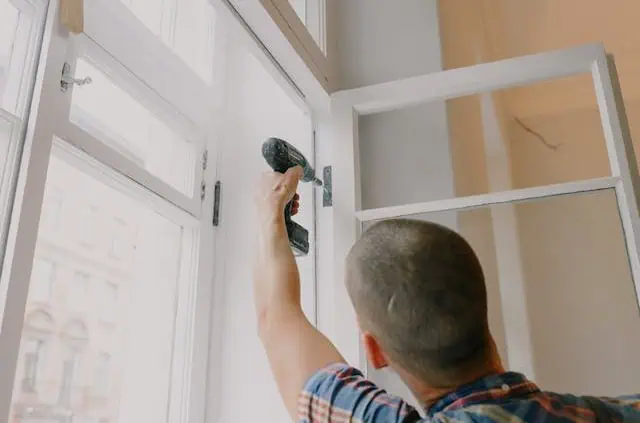Windows play a significant role in your home’s insulation, energy efficiency, and overall comfort. They don’t just allow light and fresh air into your space—they also act as barriers between your home and unpredictable outdoor conditions. But what happens when your windows start to underperform? Energy loss, higher utility bills, and discomfort can quickly become everyday issues. Recognizing when it’s time to replace your windows can save you money and improve your quality of life.
In this blog, we’ll explore the key signs your windows need replacing, the impact of upgrading them, and how to choose the right windows for your home. By the end, you’ll have a clear understanding of when and why it’s worth replacing your windows, and you’ll feel empowered to take the next step for a more energy-efficient home.
Signs Your Windows Need Replacing
Not sure if your windows have reached the end of their useful life? Here are some common signs that can indicate it’s time to consider replacing them:
Drafts and Air Leaks
Do you feel a draft every time you walk by your window? Air leaks are often a telltale sign your windows are no longer sealing properly. Over time, aging windows can warp or break their seals, allowing outside air to creep in. This not only makes it harder to regulate your home’s temperature but also ramps up your heating or cooling costs.
Difficulty Opening or Closing Windows
If you’re wrestling with your windows every time you try to open or close them, replacement may be your best solution. Old frames can expand, contract, or even rot, leading to windows that stick or don’t close all the way. Beyond the inconvenience, poorly functioning windows might also compromise your home’s security.
Visible Damage to Frames or Glass
Cracked glass, deteriorating frames, or fogging between double panes are signs your windows aren’t performing efficiently. Damaged windows can allow moisture to seep in, leading to mold or further damage. Over time, they’ll detract from your home’s appearance, too.
By addressing these signs early, you can avoid skyrocketing energy bills and more extensive repairs down the line.
The Impact of Replacing Windows
Investing in new windows is about much more than fresh aesthetics. Here are some key benefits of upgrading:
Energy Savings and Reduced Utility Costs
Energy-efficient windows can dramatically reduce heat loss in the winter and heat gain in the summer, cutting down your HVAC usage. According to the Department of Energy, replacing old, single-pane windows with ENERGY STAR®-rated windows can save homeowners $126–$465 annually on their energy bills.
Improved Home Comfort and Reduced Noise
Better insulation means fewer temperature fluctuations inside your home, making it cozier throughout the year. Many modern windows also feature soundproofing technology, providing a quieter indoor environment, even if you live near a busy street.
Increased Home Value
Upgraded windows can be a big selling point for potential buyers. They add curb appeal, demonstrate a commitment to energy efficiency, and contribute to a more secure and comfortable home—ultimately boosting your property value.
Window Replacement Options
When upgrading your windows, you’ll have several options to choose from. Here’s what you need to consider:
Energy-Efficient Window Materials and Technologies
Modern windows are designed with energy efficiency in mind. Popular materials include:
- Vinyl: Affordable, low-maintenance, and durable.
- Fiberglass: Highly energy-efficient and long-lasting.
- Wood: Adds premium aesthetics but requires regular upkeep.
Additionally, look for technologies like low-emissivity (Low-E) coatings, double or triple glazing, and gas fills like argon or krypton, which can enhance thermal performance.
DIY vs. Professional Installation
Deciding whether to replace windows yourself or hire professionals comes down to your budget, skills, and project size.
Pros of DIY:
- Lower upfront cost.
- Great for handy homeowners.
Cons of DIY:
- Risk of incorrect installation leading to inefficiency or leaks.
- Limited support if issues arise.
Pros of Professional Installation:
- Expertise ensures proper fit and function.
Cons of Professional Installation:
- Higher labor costs.
Weigh the pros and cons based on your comfort level with home improvement projects.
When to Schedule Window Replacement
Timing plays a crucial role in window replacement. Here’s when to plan your project for the smoothest experience:
Seasonal Considerations for Optimal Installation
Spring and summer are typically the best seasons for replacing windows, offering mild weather that simplifies installation. However, if you’re looking to save money, contractors may offer discounts on installations during their slower seasons (fall and winter).
Planning Around Home Improvement Projects
If you’re renovating or painting your home, coordinate your window replacement to avoid rework or damage. Proper planning lets you maximize the impact of all your updates.
How to Choose the Right Windows
Choosing the right windows for your needs can be overwhelming, but knowing what to look for simplifies the process:
Understanding Energy Performance Ratings
Learn to read window labels, paying attention to these key metrics:
- U-Factor (measures heat transfer): Look for a lower number (i.e., better insulation).
- Solar Heat Gain Coefficient (SHGC) (measures solar radiation penetration): Choose a low SHGC for hot climates and a higher SHGC for cold climates.
- Energy Star Certification for guaranteed energy efficiency.
Matching Window Style to Home Design
Your windows should not only perform well but also complement your home’s architecture. Styles like casement windows suit modern homes, while double-hung windows pair well with traditional aesthetics. Make sure the size, grid patterns, and frame color work harmoniously with the rest of your home.
Time to Assess Your Windows for a Better Home
Replacing your windows enhances your home’s insulation, energy efficiency, and overall appeal. Whether you’re dealing with air leaks, outdated designs, or rising energy costs, upgrading to modern, energy-efficient models can make a world of difference.
Take a closer look at your windows today. Identify if it’s time for an upgrade, and start planning your window replacement strategically. Unsure where to begin? Consider consulting with a trusted professional or home improvement expert to explore your options.
Are your windows holding up or holding you back? Take the next step toward a more comfortable, efficient, and valuable home!




